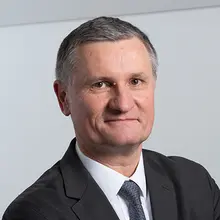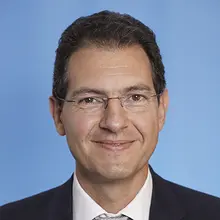Summary
Money market funds (MMFs) are a vital element of a treasurer’s short-term investment toolkit. The security, liquidity, and yield offered by MMFs enable treasurers to look beyond bank deposits, while ESG MMFs can help support broader sustainability goals.
MMFs have long been a popular instrument for corporate treasurers to invest surplus cash. A critical reason for this is that the funds offer diversification and daily liquidity without notice.
Sandrine Rougeron, Global Head of Corporate and Corporate Pension Fund Clients, Amundi, comments: “Today, corporate treasurers are investing more in MMFs to diversify their surplus cash allocation. They are also increasingly referencing and using MMFs to allocate their surplus cash, showing renewed interest in MMFs invested in government debt to de-risk from banks.”
MMFs offer several benefits for corporate treasury investors. They provide daily liquidity by investing in highly liquid short-term debt issued by governments, banks, and corporations. Through this high-quality universe of short-term debt instruments, MMFs also give treasurers security for their cash.
With central banks worldwide currently maintaining interest rates ‘higher for longer’, MMFs have been able to offer more attractive rates to investors. While this benefits treasurers, the security and liquidity elements of investing in an MMF tend to take preference over the yield a fund can offer. But that is not to say that the current rate environment has had no effect on the treasury community.
Cash management at times of higher rates
MMFs offer several benefits for corporate treasury investors. They provide daily liquidity by investing in highly liquid short-term debt issued by governments, banks, and corporations.
“The higher interest rate environment, which is reflected in the positive performance of MMFs, has seen treasurers that used to use the instrument return and attracted new treasurers to invest in MMFs,” notes Rougeron.
“The performance of MMFs is also notable, providing a return in line with money markets and low volatility.”
MMFs also offer diversification beyond simply being a different product to bank deposits.
Patrick Siméon, Head of Money Market, Amundi, reflects: “Our portfolios are diversified in terms of issuers, sectors, ratings, instruments, and geographies. We apply our own credit risk assessment based on fundamentals by a dedicated team of credit risk specialists whose role it is to assess any risk of default or credit event.”
Amundi’s credit risk team is independent of the management team. The team sets limits regarding amounts and maturities before any investment is made. This is designed to provide clients with the strict risk framework necessary to preserve capital while using a flexible tool that differs from the usual bank counterparty risk that corporates manage.
“It is a means of investing cash in a diversified way where the underlying assets invested in the fund are segregated at the custodian, avoiding any direct counterparty risk with the asset manager promoting the MMF,” highlights Siméon.
Financing the economy with MMFs
Our portfolios are diversified in terms of issuers, sectors, ratings, instruments, and geographies. We apply our own credit risk assessment based on fundamentals by a dedicated team of credit risk specialists.
MMFs also play a vital role in the broader economy, as these funds are the main investors in the money market. This financing market is where issuers with short-term needs look for investors. Investing in the money market makes sense for MMFs because their customers have a short-term investment horizon and may need cash at any time.
Patrick Carletto, Co-Head of Money Market, Amundi, explains: “The money market offers the advantage for an issuer of being able to cover their needs quickly and without any impact on their financing curve.”
The money market is over-the-counter, and borrowing large amounts takes only a few days for issuers already known to the market. The price is known only to the issuer and the investor, so there is no risk of spreading it to another market.
“There are many examples of the importance of this market, a prominent recent one being during the Covid crisis in 2020,” adds Carletto. “Governments introduced policies to support businesses and employees, and issuers such as government agencies had to refinance themselves rapidly and in large amounts on the market.”
Even banks use the money market, being responsible for 70% of issuances. In 2022, when the European Central Bank (ECB) changed the remuneration of the targeted longer term refinancing operations (TLTROs), banks had to replace this funding with a market resource. Again, MMFs were the primary investors.
“MMFs are regular investors in the money market,” outlines Carletto. “By providing regular funding to the market players, they contribute to financing the economy.”
We have always been active in the short-term bond market and talk to corporates or bank syndication desks to match the needs of issuers with our own.
Fund managers can invest in commercial paper or short term bonds on the money market. They require technical and operational knowledge because there are challenges involved.
“We must ensure the liquidity of our investments at all times, as our customers may have a sudden need for cash,” Carletto acknowledges. “Also, we must be able to invest whatever the market conditions are.”
Market conditions have proven to fluctuate, from negative rates to today’s higher-for-longer central bank monetary policies and issues such as the inverted yield curve and ECB’s buying programme. To meet the challenges of investing in the money market, Amundi has created a short-term origination team, known as the investment strategy for MMFs.
“These portfolio managers are in permanent contact with issuers to understand their needs,” enthuses Carletto. “This could be liquidity coverage ratio and net stable funding ratio for banks, or financing needs and M&A operations for corporates.”
This open discussion is an opportunity to anticipate market trends and adapt the firm’s management accordingly.
“We have always been active in the short-term bond market and talk to corporates or bank syndication desks to match the needs of issuers with our own,” Carletto reveals. “Experience has shown the value this brings to our customers, enabling us to maximise the pricing power of our MMFs, and therefore benefit from the best prices and opportunities.”
Performing under regulatory scrutiny
Corporate treasurers are accountable actors in the economy and responsible debt issuers, so they are naturally expanding their responsible investing requirements to short-term investments.
One important topic to consider when discussing MMFs is the regulatory scrutiny the sector faces. A series of recent events has led international and local market and banking authorities to review their recommendations and assessments of the financial stability risks arising from the activities of non-bank financial intermediaries.
Siméon recalls: “We’ve seen examples such as the ‘dash for cash’ at the start of the Covid-19 pandemic in March 2020 with massive outflows from MMFs, the bankruptcy of the Archegos family office in March 2021, which impacted Credit Suisse, and the UK’s mini-budget crisis of September 2022.”
All regulators are concerned about the need to increase instant liquidity reserves. The UK’s Financial Conduct Authority (FCA) recently proposed raising the weekly liquid assets to 50% of MMFs. The European Commission is expected to review the Money Market Funds Regulation during the next mandate, which begins in the second half of 2024.
“For our part, we are closely monitoring fund liability stress tests, taking into account the nature of the clients invested, and improving instant liquidity buckets where it is deemed relevant,” notes Siméon.
Amundi works to ensure the liquidity of its MMFs through a high level of diversification, through the assets it invests in and its client base in terms of the spectrum of sectors and geographies.
“We have a wide range of investors, corporates, insurance companies, and pension funds in various countries with different cash flow patterns,” explains Siméon. “This is essential when considering the visibility we can have on liquidity.”
Corporate treasurers follow the regulations closely, watching for any rule changes that may modify or alter the benefits expected from MMFs. Equally, MMFs invest in short-term debt issued by many eligible corporates, which is another cause for treasurers to follow the evolution of regulations.
Rougeron comments: “We have a regular dialogue with corporate treasurers so they have a clear understanding of what’s going on with the regulations and what could happen.”
ESG criteria integration in money market strategies
MMFs are regular investors in the money market. By providing regular funding to the market players, they contribute to financing the economy.
Responsible investing capabilities in finance are under the microscope today. This is something that particularly applies to the MMF space, with many funds promoting their green or social credentials. These funds can be attractive to treasurers, many of whom will play an essential role in their organisations’ overall ESG focus.
“Corporate treasurers are accountable actors in the economy and responsible debt issuers, so they are naturally expanding their responsible investing requirements to short-term investments,” affirms Rougeron.
One challenge treasurers can face is understanding the true nature of specific funds’ ESG credentials. To address this issue, regulators have taken steps to ensure that asset managers disclose how ESG criteria are integrated into their funds. For example, the Sustainable Finance Disclosure Regulation (SFDR) is one of the crucial ESG directives in Europe, requiring mandatory ESG disclosure obligations for financial market operators, including asset managers.
“In our initial discussions with newcomers to MMFs, topics such as SFDR and our responsible investment philosophy and process of investment are key,” emphasises Rougeron. “This continues once they are investing. We are in constant dialogue with corporate treasurers on this important topic.”
Siméon explains that at Amundi, the first step in integrating ESG criteria into the firm’s management of its MMFs is for the credit risk analysts to take particular account of the governance pillar in their approach.
“Experience shows that an issuer with weak governance is more likely to be subject to financial risks sooner or later,” he reasons.
Amundi also systematically excludes specific sectors that are naturally unaligned with its responsible investing policy. Notable examples include thermal coal, coal production or coal-based electricity generation, and all manufacturers involved in producing non-conventional weapons.
“We then apply a best-in-class approach, relying on the ratings provided by our extra financial analysts, while systematically beating the average rating of our investment universe,” Siméon adds. “We also measure impact criteria, such as the portfolio’s carbon intensity.”
To keep its client base up to date with what is happening in the responsible investment space for MMFs, Amundi regularly explains its approach to treasurers by inviting its extra financial analysts to present their rating methodology.
“We also disclose in details the ESG rating of a portfolio in comparison to its investment universe in the monthly factsheet of the fund,” asserts Siméon.
The public discourse around ESG in finance will undoubtedly continue, but treasurers must understand two key points: how ESG MMFs support the targets of their own organisations and which underlying assets the funds themselves are investing in. Transparency and understanding of the methodology will enable treasurers to invest in ESG MMFs with confidence.
This article was written by TMI, in partnership with Amundi.
Find out more about our offer

Treasury




